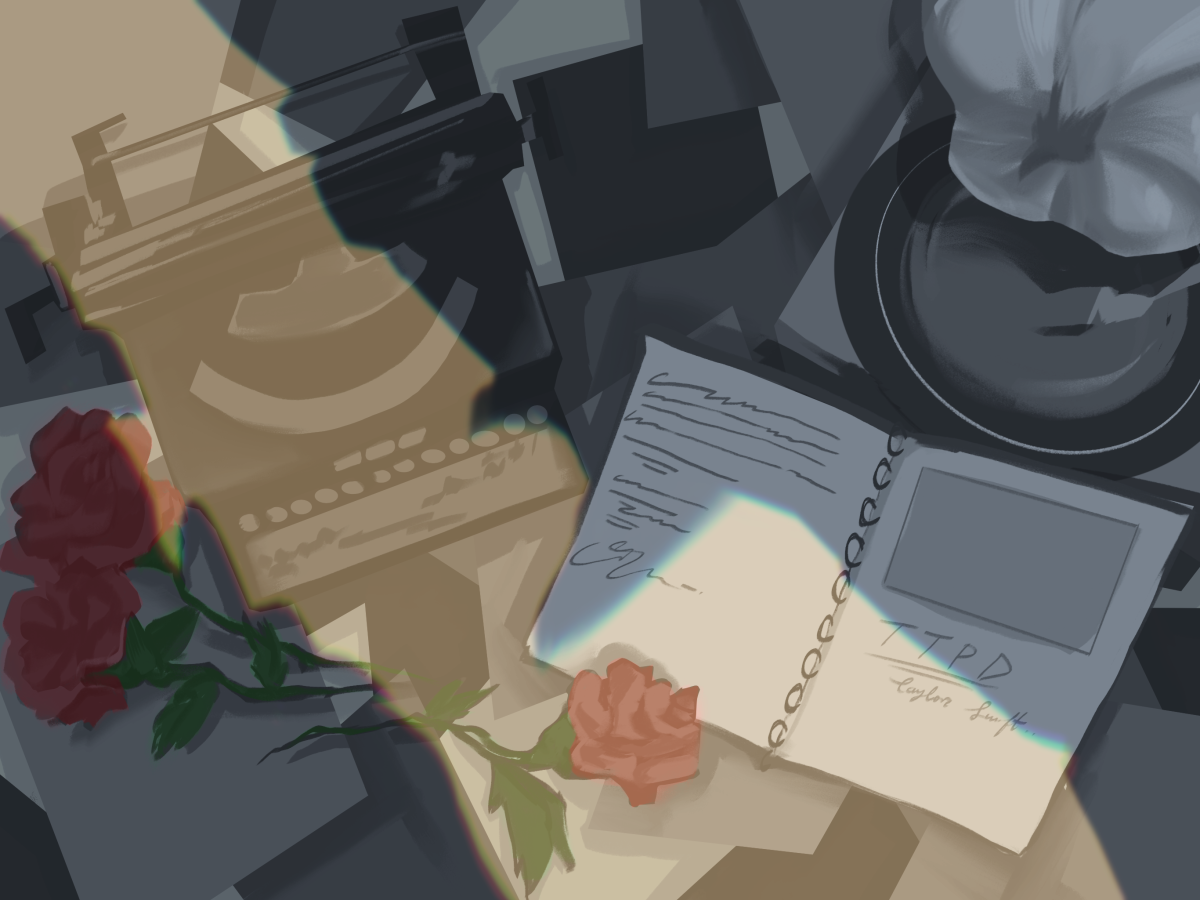With Castilleja’s Taylor-Swift-Tinted school year, Castilleja students have been highly anticipating Taylor Swift’s 11th album, “The Tortured Poet’s Department” (TTPD).
I’m sure I’m not the only person who has opinions about “TTPD,” but I do think I have uniquely well-thought-out opinions. My qualifications are as follows: I’ve been an avid Swiftie since the year 2010, I’m a music junkie who has been keeping tabs on new music for months and I’m a poet.
After about five listens to the whole album, including “The Anthology,” I’ve come to the following conclusion. This album is lyrically overwhelming—chock-full of metaphors, symbolism and eloquent poetry—but sonically underwhelming.
I’ll start with the polarizing take first. “TTPD” is categorized as a blend between folk-pop, à la “Folklore,” and synth-pop. The issue with both these genres is neither was done well enough to wow me.
In terms of folk-pop, it’s nothing special in comparison to Swift’s past work. “Folklore’s” alluring melody will forever and always (pun intended) outdo the sound on “TTPD.” Songs like “The Black Dog,” “The Manuscript” and “The Smallest Man Who Ever Lived” are excellent songs lyrically, but the piano sound behind them during much of the verses is fairly simple and not particularly compelling.
For many of Swift’s songs, the sound seems like an afterthought in comparison to the clearly very well-thought-out lyrics. It doesn’t feel like a smooth combination.
“The Smallest Man Who Ever Lived” is also an excellent example of the extremely underwhelming use of synth-pop. Synth-pop is having an extreme resurgence in popularity right now and, in comparison to other artists, Swift doesn’t measure up.
Artists like Conan Gray with “Found Heaven” and Chappell Roan with “The Rise and Fall of a Midwest Princess” have been models of how excellent synth can be. The sounds are reminiscent of classic ‘80s synth bands like Tears For Fears, Soft Cell and Duran Duran with a fresh modern twist. Their music is fun and upbeat, and the synth enhances the songs, making them instant get-up-and-dance classics.
In comparison, Swift’s use of synth in her music is just ok. There is a steady synth hanging out in the background. It is often in sadder tracks so we can’t ask it to be super high energy. But even still, the synth doesn’t stand out. If we look at “Tainted Love” by Soft Cell, it’s an excellent blueprint for how to use synth interestingly in less happy songs. Instead, “The Smallest Man Who Ever Lived” falls flat in terms of instrumentation.
Now that I’ve thoroughly called the album just ok, it’s time for my glowing praise. I adore the lyricism in “TTPD” because it is the perfect evidence to prove that music is poetry. It does feel a little bit like the Notes app poetry you might write at 2 AM (guilty), but that’s what it should feel like after you break off a six-year relationship.
My favorite example of obvious poetry is in “How Did it End” which goes: “The deflation of our dreaming / Leaving me bereft and reeling / My beloved ghost and me / Sitting in a tree / D-Y-I-N-G.”
First of all, who else uses the word bereft in modern pop music? Second of all, I adore how this line rhymes, how the consonants click together, and the pain that it communicates. This is the kind of feeling every poet goes for and Swift does it beautifully.
There are other lines that I love for other reasons: The emotion in “And I’m just getting color back into my face. / I’m just mad as hell ’cause I loved this place.” (“So Long, London”), the absolute linguistic masterpiece that is “God save the most judgmental creeps / who say they want what’s best for me, / sanctimoniously performing soliloquies I’ll never see.” (“But Daddy I love him”), and, of course, “Old habits die screaming.” (“The Black Dog”).
I will always adore lyricism and that’s why you can pry Taylor Swift’s music, no matter the instrumental quality, out of my cold, dead hands.
Whether you’re mad at me about this article because you’re a Swiftie or because you’re not, I think you’ll find I did my research with this one. I’d love to argue with you about it but rest assured, you’ll lose.




